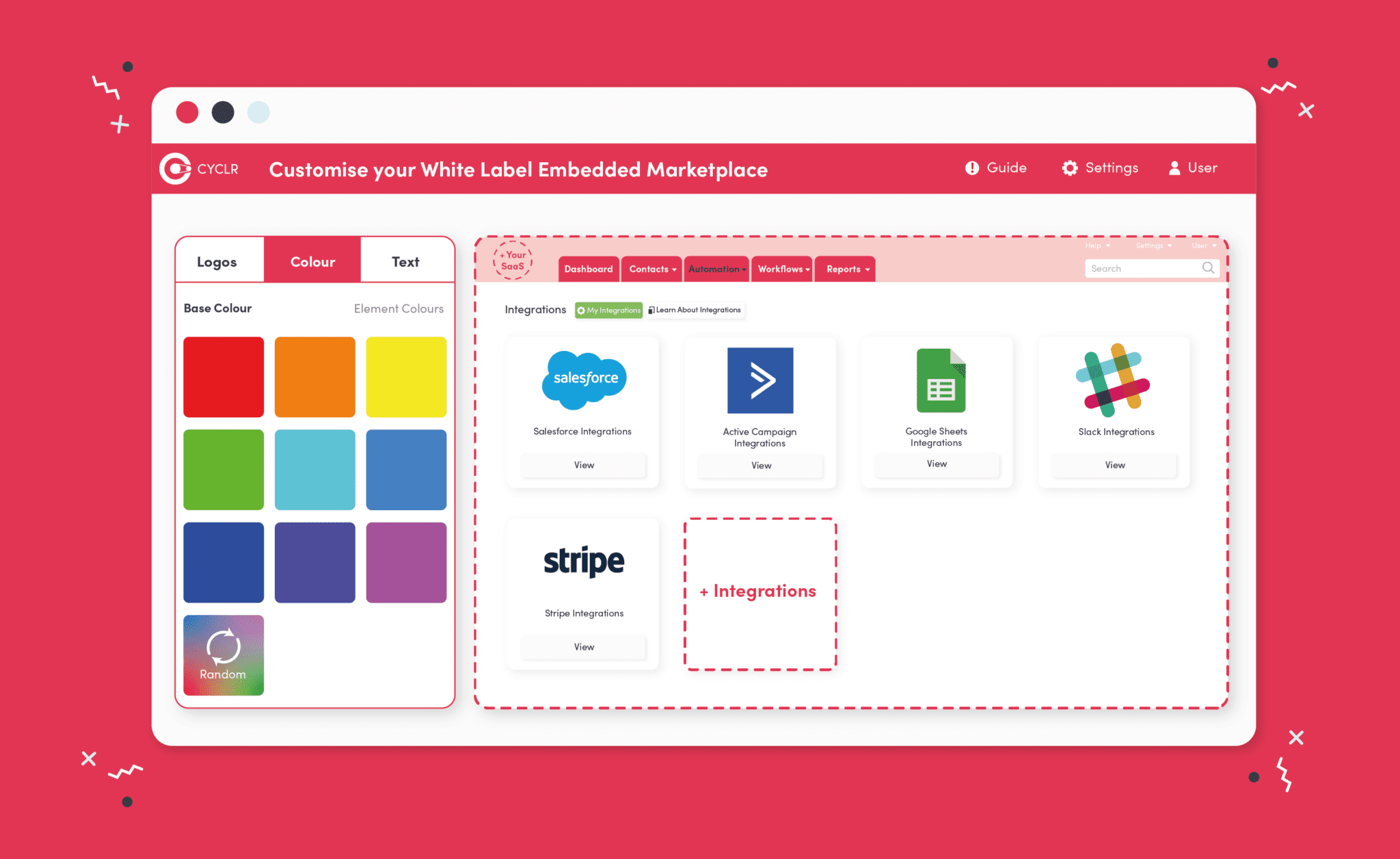
Updated on by Hayley Brown
White-label SaaS software is useful when a business is looking to expand its product and service offerings. Doing so without the development overhead. The white-label software market has greatly expanded with offerings for a multitude of different products and services.
So this brings us to the question, what is a white-label SaaS?
White-Label SaaS
A white-label SaaS is an unbranded product purchased by a company and rebranded as one’s own.
In a physical store, white-label products are made by one company. Then packaged and sold by other companies under a variety of brand names. This is not too dissimilar to that of white-label SaaS software.
For instance, a company decides to purchase, rent or lease a product and/or services of a software company. Based on a monthly subscription fee. This is then provided unbranded. It can then be customised according to the business’s style guides, and then sold and used by customers.
Types of White-Label SaaS Software
As mentioned before the white-label software market has grown significantly. This has resulted in several different types of white-label SaaS software and tools.
A predominant white-label SaaS that is commonly used amongst many organisations is email marketing software. The software solution provides users with the chance to completely control their outgoing emails. As well as the ability to schedule email marketing campaigns and see their statistics, build integrations, and improve customer personalisation.
Email Marketing Tools
The white-label solution is made easy to use through low-code email marketing tools. Emails can be designed with business branding and personalisation. This adds a personal touch for your customers and results in actionable insights to grow your business.
Development Tools
Web/App design and development software have been expanding their possibilities for businesses. Leading brands offer a white-label experience. This enables users to build websites for their customers with drag-and-drop tools. The customers when updating their site only ever see your branding and not the web/app developers.
With the rise and dominance of social media, marketers are having to keep tabs on a multitude of platforms. Social media management tools have made it much easier. With customisable dashboards, they present your social media accounts in one place. They then have the ability to help users manage and post their social media content. As well as interact with their audience.
Integration Tools
Relatively new and growing software development is white-label integration software. Typically in the form of an embedded iPaaS. Integration software offers users the opportunity to develop and expand their SaaS products with native integration capabilities.
Using low code, drag-and-drop tools users can build bespoke integrations for their customers without relying on their developers. Citizen integrators can create reusable automated workflows which can then be presented to their customers in an embedded marketplace. This can then be customised with their branding, and enable the easy deployment of native integrations.
Advantages of White-Label Solutions
Using white-label products and tools has many advantages. Mostly they can save organisations time and money. Especially if they are in the process of developing their core product offering further. It is therefore unnecessary to add more to developers’ backlog and instead utilise other tools.
Using a white-label business can improve customer experience. As the solution can aid SaaS development, and increase responsiveness to customer requests. It can also make an organisation more attractive to potential and existing customers.
Ultimately a white-label solution is a fast and cost-effective approach to expanding a product offering efficiently, and with low risk.
Why do software organisations white-label their product?
When a software organisation white labels their product it results in them receiving more clients. This is done without creating a new product and utilising one that already exists, and is offered to resellers. The software organisation then gains access to the white-label reseller’s customer base.
It then benefits from its sales and marketing efforts. Depending on their subscription model the more the reseller scales their product usage may also grow. Resulting in a higher subscription spend, as long as the product is designed with scalability in mind.
The product can also be launched into new markets faster, and used by a variety of industries. Industries potentially not on the radar of the original SaaS developer.
Cyclr is an embedded iPaaS offering white-label tools to build and deploy native integrations. Speak to one of our experts today and start enhancing your integration strategy today.
Are you looking for a white-label platform to build and manage your integrations? We’d love to show you a demo of Cyclr!